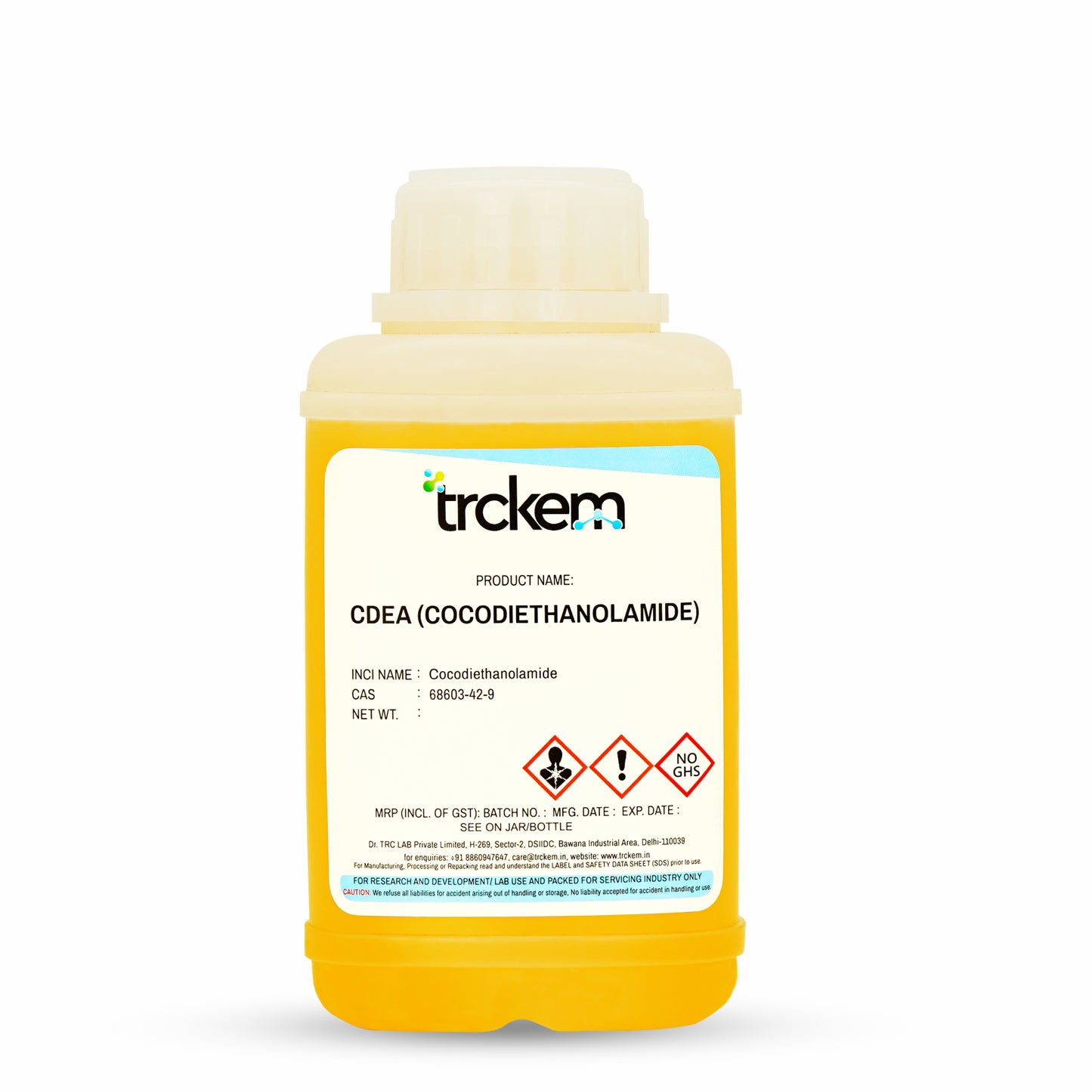
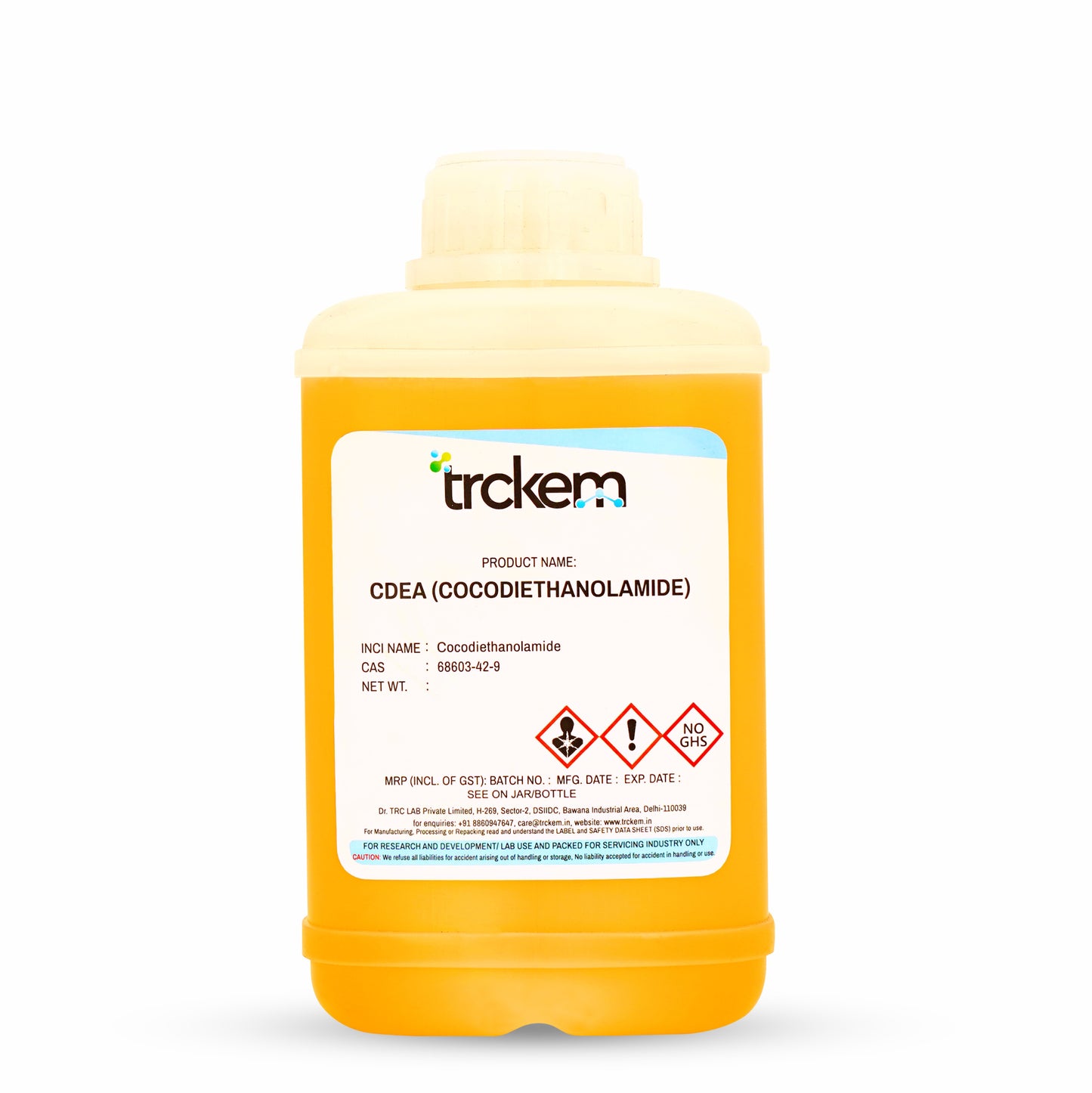
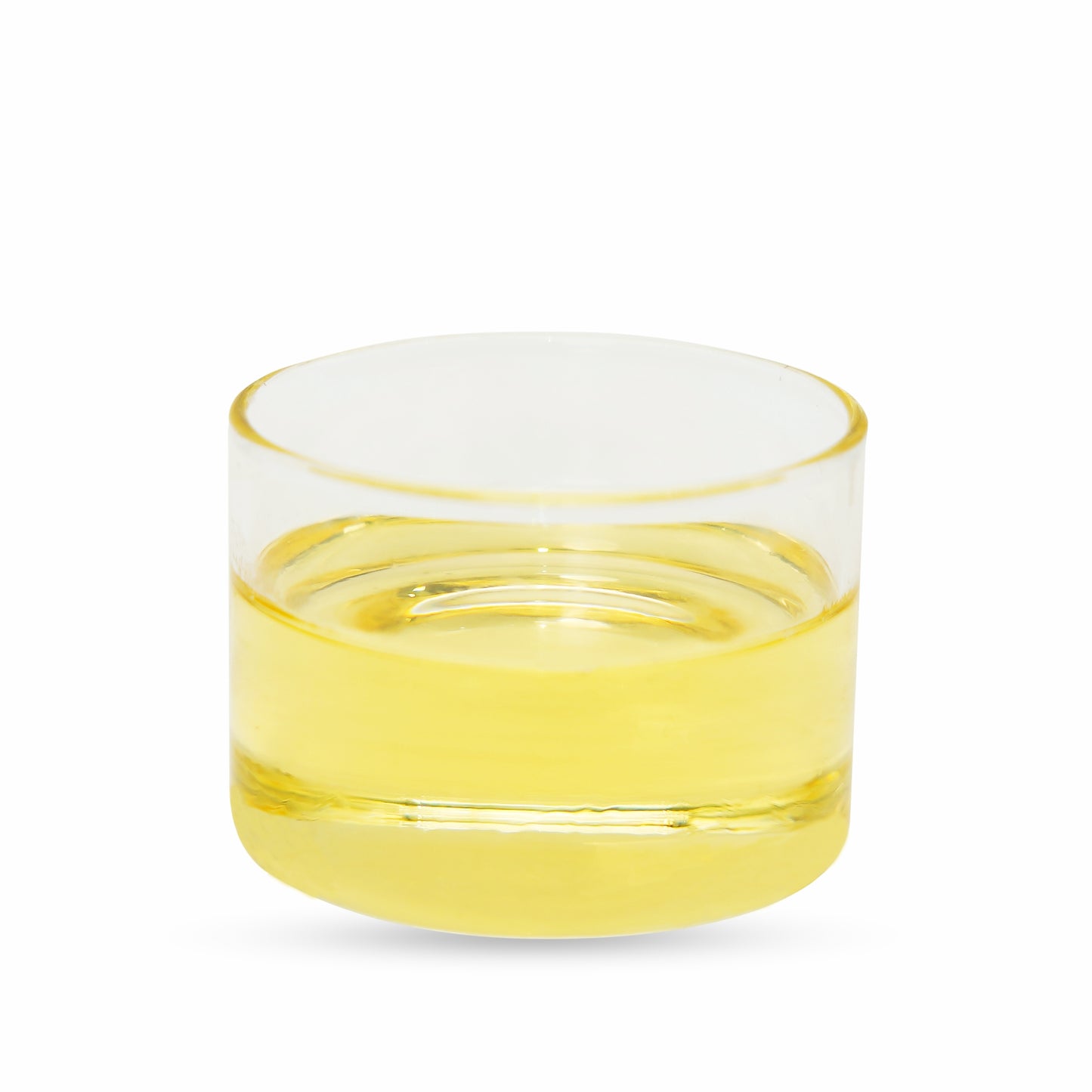
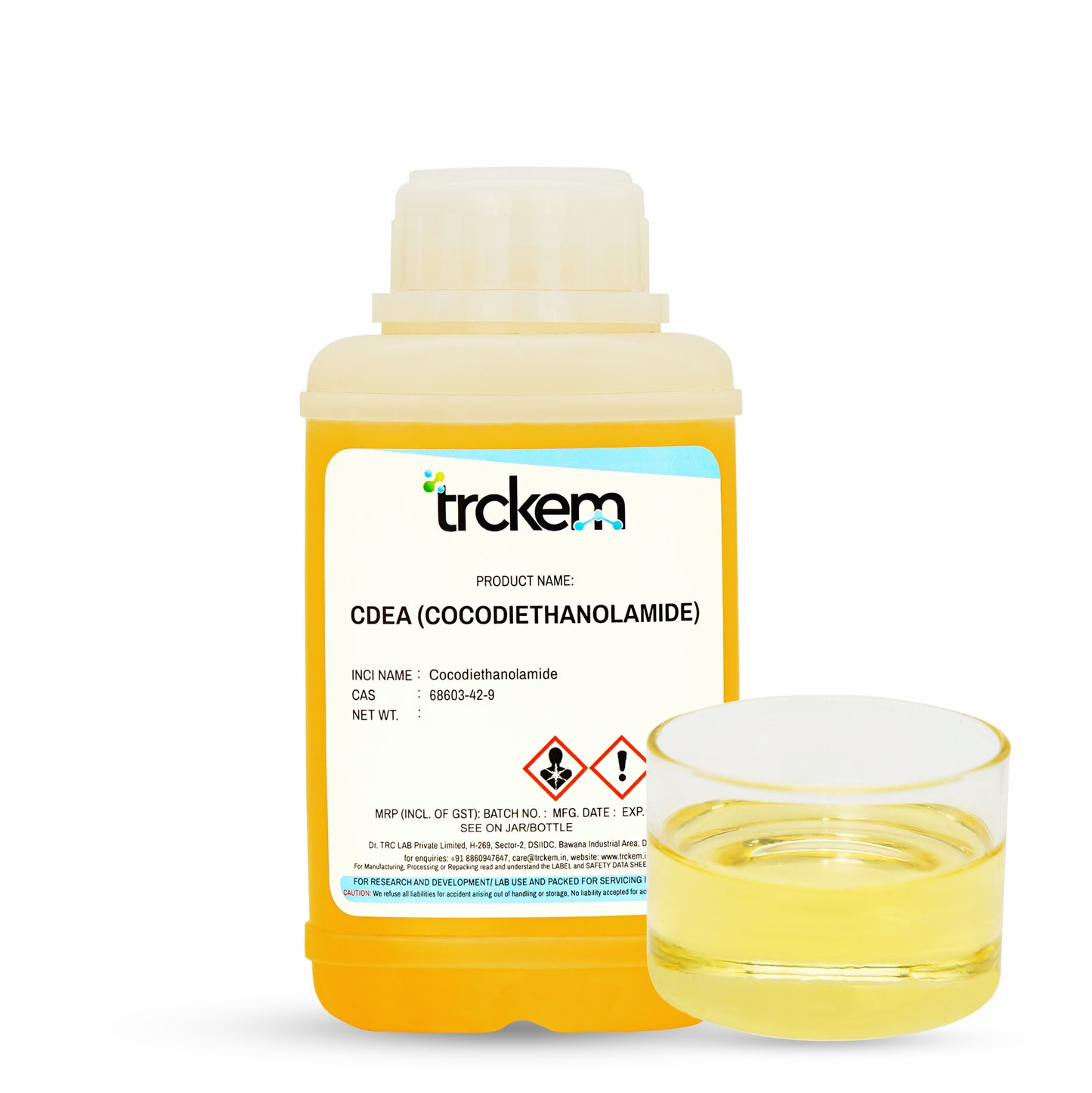
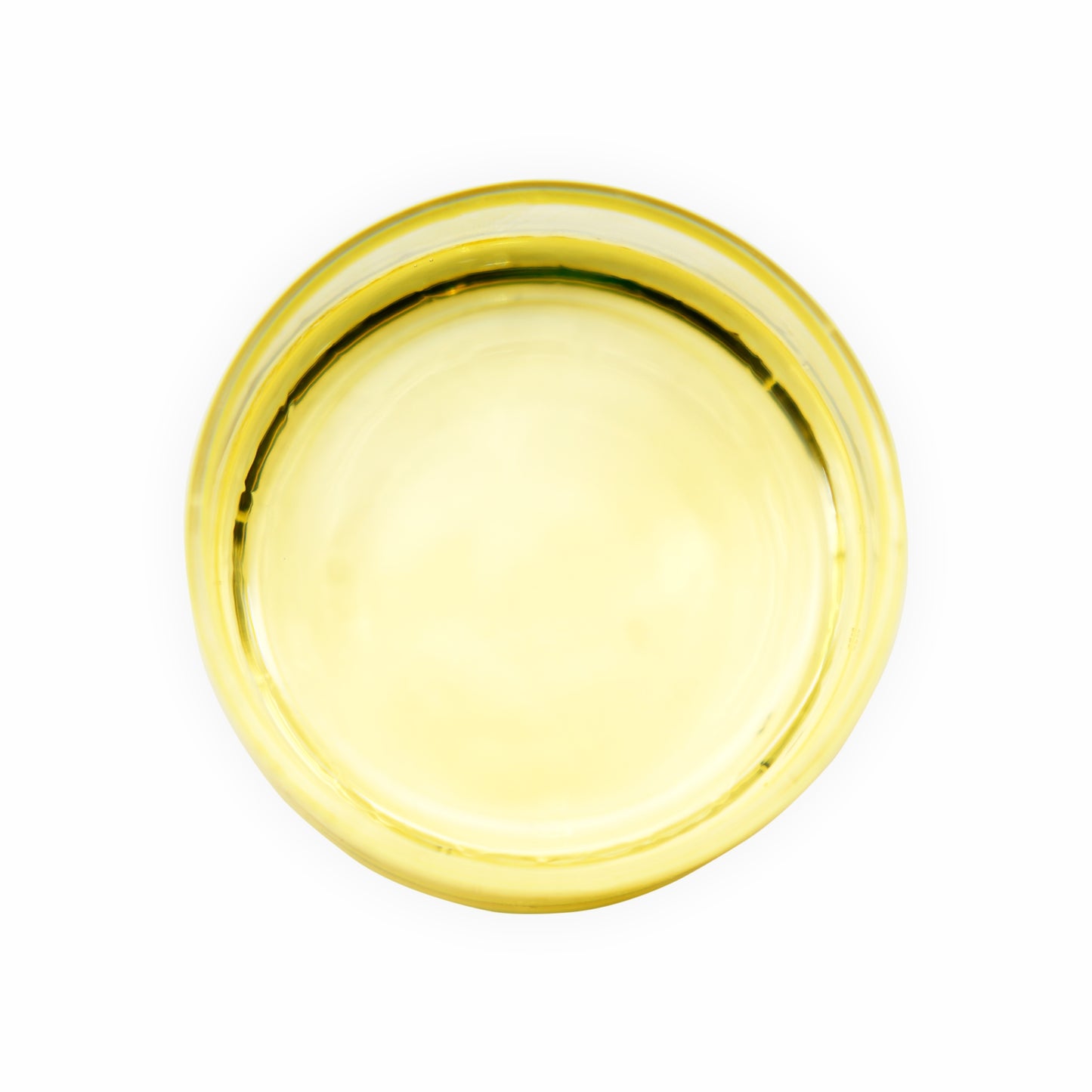
THE STORY OF COCODIMETHANOLAMIDE (CDEA)

Cocodimethanolamide: The Rich Foam Booster & Viscosity Enhancer from Coconut Oil
Cocodimethanolamide (commonly known as Cocamide DEA) is a non-ionic surfactant and foam stabilizer derived from coconut oil. It enhances foam thickness, viscosity, and cleansing performance in shampoos, face washes, and body cleansers — delivering rich lather and a creamy sensory experience while improving product stability.

Derived from Coconut Fatty Acids Through Controlled Amidation
Cocodimethanolamide is made by reacting diethanolamine (DEA) with coconut fatty acids, producing a high-viscosity, amber-colored liquid. This naturally derived surfactant acts as a foam stabilizer and thickener for anionic surfactants such as SLS, SLES, and CAPB.
TRCkem supplies low-amide, high-purity cosmetic-grade Cocamide DEA with consistent performance across formulations.

Boost Foam. Stabilize Texture. Enhance Clean Feel.
Key benefits in cleansing & personal-care systems:
✅ Thickens formulations and improves body
✅ Stabilizes foam for a luxurious lather
✅ Enhances cleansing power and rinsability
✅ Provides mild emulsifying action for oils and actives
✅ Boosts surfactant synergy in combination with SLES/CAPB
Used in: shampoos, liquid soaps, facial cleansers, bubble baths, dishwash liquids, and industrial hand washes.

Stable and Effective — Use with Regulatory Compliance
• Typical use level: 1–6% active in shampoos and cleansers
• Ideal pH range: 5.5–8.0
• Add to water phase under heating (~60°C) for uniform viscosity
• Non-ionic, compatible with all surfactant types
• Regulated globally: restricted concentration in EU (due to nitrosamine potential); compliant under controlled formulation
• Store sealed, away from moisture and light — may darken over time without affecting function
Formulator’s Queries, We Answered
1. What is CDEA (Cocodiethanolamide)?
CDEA, or Cocodiethanolamide, is a non-ionic surfactant derived from coconut oil. It is commonly used in personal care products as a foam booster, thickener, and emulsifier. It enhances the texture and performance of formulations, making them smoother and more effective in cleansing.
2. What is the CAS Number and INCI Name of CDEA?
CAS Number: 68603-42-9
INCI Name: Cocamide DEA
3. What are the benefits of using CDEA in personal care products?
Foam Booster – Enhances lather and foam stability in shampoos, body washes, and facial cleansers.
Thickening Agent – Improves the viscosity of liquid formulations.
Emulsifier – Helps blend water and oil-based ingredients for a smooth formulation.
Mild Cleansing Action – Provides gentle cleansing without stripping natural oils from the skin and hair.
Conditioning Effect – Helps maintain moisture balance in hair and skin care products.
4. What are the common applications of CDEA in personal care?
Shampoos & Conditioners – Boosts foam and enhances texture.
Body Washes & Liquid Soaps – Improves cleansing efficiency and lather.
Face Cleansers – Provides mild yet effective cleansing.
Hand Washes & Dishwashing Liquids – Improves foaming and emulsification.
5. Is CDEA safe for use in personal care products?
CDEA is widely used in personal care formulations but should be used within recommended concentrations. Some regulatory bodies, such as the European Union, have restricted its use due to potential concerns about the formation of nitrosamines when combined with certain ingredients. Proper formulation practices should be followed to ensure safety.
6. Can CDEA cause skin irritation?
In some individuals, especially those with sensitive skin, CDEA may cause mild irritation or allergic reactions. A patch test is recommended before extensive use.
7. Is CDEA environmentally friendly?
CDEA is derived from natural coconut oil, but its biodegradability and potential environmental impact depend on how it is processed. Sustainable and eco-friendly alternatives are often recommended in green formulations.
8. Are there alternatives to CDEA in personal care products?
Yes, alternatives include:
Cocamidopropyl Betaine (CAPB) – A milder surfactant with similar foaming and thickening properties.
Decyl Glucoside – A plant-based surfactant known for being gentle and biodegradable.
Lauryl Glucoside – A non-ionic surfactant used in natural formulations.
You Might Also Need
-
Vendor:Vendor
Example product title
Regular price Rs. 403.00Sale price Rs. 403.00 Regular priceUnit price per -
Vendor:Vendor
Example product title
Regular price Rs. 403.00Sale price Rs. 403.00 Regular priceUnit price per -
Vendor:Vendor
Example product title
Regular price Rs. 403.00Sale price Rs. 403.00 Regular priceUnit price per







